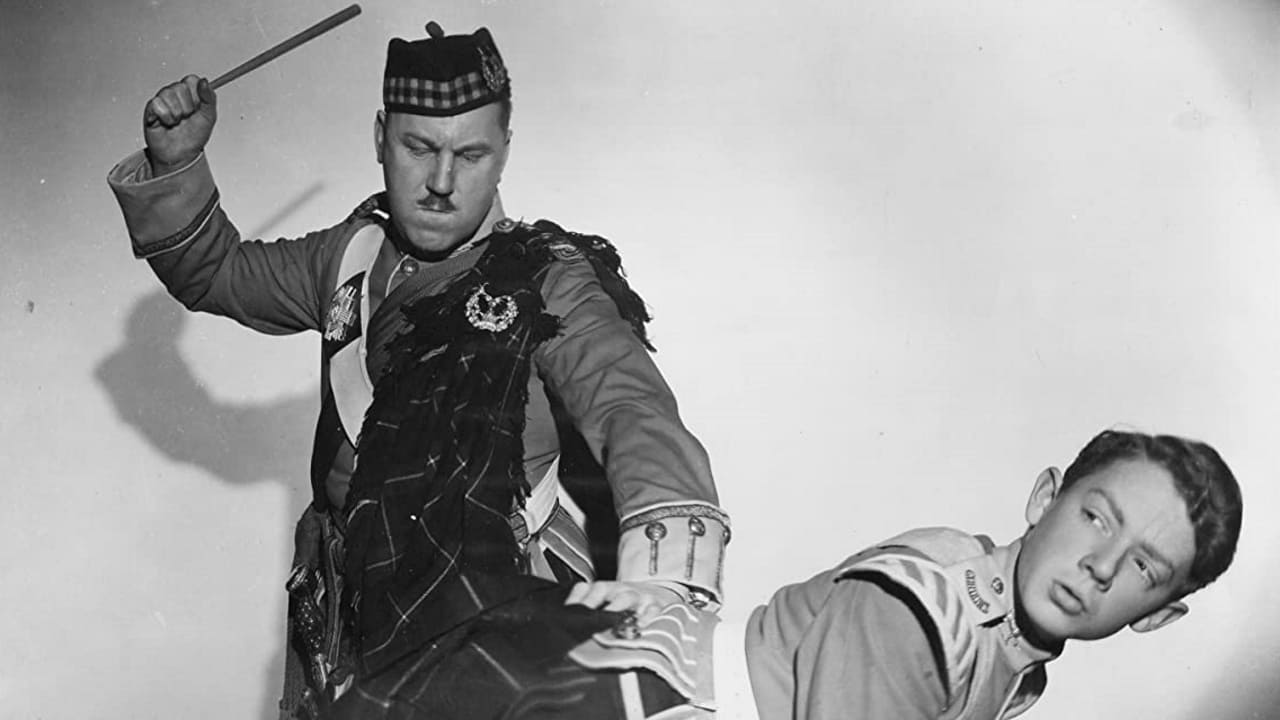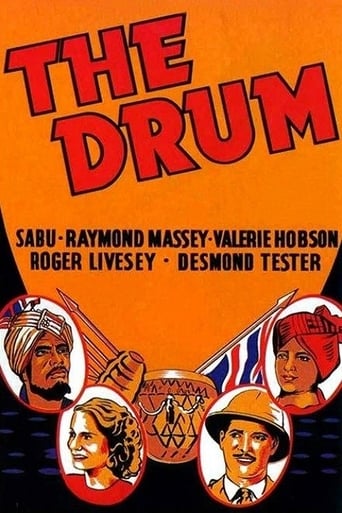

'It is wrong to try to avoid the struggle against imperialism under the pretext that independence and Revolution are important, but that peace is still more precious' Kim il Sung A spirited, patriotic, production imbued with an idyllic representation of the benevolence of British rule, released at a time when the Empire faced the dual threats of increasing nationalist resistance and the rise of fascism. As part of the defence of British and imperial values, the Korda brothers would produce a series of unashamedly propagandist features to highlight the merits of British colonialism. Ironically, the director of many of these productions, Zoltan Korda, would often clash with his brother over such material, given his own cherished liberal and socialist ideals. This film is based on a novel published just twelve months earlier by AEW Mason, to whom the Korda brothers would return the following year for a film adaptation of his most famous story, 'The Four Feathers'. The eponymous instrument in this production will augur the fall of imperial rule over the fictional principality of Tokot, with the marking of the massacre of British troops invited to a banquet held supposedly in their honour by the local treacherous khan. Tokot is notionally set in an area of historical unrest on the northern borders of the 'Jewel of the Imperial Crown', and one of the film's biggest draws is the glorious Technicolor cinematography used to full effect in capturing the majestic landscape of the North-West Frontier – Snowdonia in reality. This film also marks the second appearance of Sabu, and though written as a vehicle for this newly acquired teenage star and creating a wave of rave reviews in Hollywood, his performance suffers slightly due to his lack of sufficient screen time. His being cast as the young prince has a real touch of irony in that prior to being discovered he had followed in his father's footsteps as the ward to the Royal elephant stables to a local maharajah. The plot has our young prince, and true heir to the throne of Tokot, forced to flee his lands and assume the identity of a mere beggar boy on the streets of the Raj, after his uncle's usurping of his murdered father's title. In exile, the impressionable teenager seeks to warn his father's benign and paternalistic British masters of the threat his uncle poses to their continued rule. The stoic Ronald Livesey in the role of Captain Carruthers, though a consummate actor, is far from convincing as a dashing action hero. Yet, he is ably supported by the graceful and unflappable presence of his wife, played competently by Valerie Hobson - qualities she herself would be required to display years later off-screen as the besieged partner of scandal-ridden politician John Profumo. Despite being penned by the creator of one of the hallmark yarns depicting imperial adventure, 'The Four Feathers', the plot of this adapted production fails to move beyond first gear. Moreover, this unashamed defence of Empire is reputed to have sparked nationalist riots in India. Yet, despite its lack of political correctness, the film remains a watchable and colourful spectacle due to the aforementioned photography, the rousing action finale – where the movie's tagline of 'a cast of 3000' is no mere hyperbole – and above all to a wonderful performance as pantomime-like villain, Prince Ghul, by Raymond Massey.
... View MoreAll is not well on the Northwest Frontier: the dastardly Prince Ghul (Raymond Massey) has assassinated the ruling king so that he can take his kingdom back from the British with the aid of machine guns smuggled in from Afghanistan. To escape the same fate as his father, Prince Azim (Sabu) assumes the identity of a lowly peasant as he tries to warn Captain Carruthers (Roger Livesey) of the danger that awaits him and his men.The Drum is one of those old school British films that glorified our former position as Empire builders by painting us as benign masters deeply concerned about the well-being of those whom we had colonised. The redoubtable Roger Livesey is the embodiment of stiff upper lippery as he strives to foil the skulduggery of the evil Ghul - a wonderfully malign performance from a black-faced Raymond Massey - and return Azim to his rightful place on the throne of Tokot. Livesey wasn't really well-suited to the dashing hero type, although he was the epitome of the British colonial officer. Although he was only in his mid-thirties when he made this film, he looks much older, as if he'd be more at home over a fat cigar and a glass of port in the study than battling fuzzy-wuzzies in the searing heat. Valerie Hobson plays his devoted wife with that glacial air reserved for the wives of officers or upper-class businessmen in pre-WWII Brit flicks, and it's impossible to imagine her locked in a passionate embrace with her husband. In fact that is probably where the biggest problem with this film lies: there's very little passion for anything evident in any of the characters: they are simply facing - or creating - one problem after another and stoically devising ways of dealing with them.The plot is fairly stodgy by today's standards. There's a lot of talk and precious little action until the last reel or two, which means many people will find it hard going. Suffice to say, the equilibrium is restored by the final reel and our Colonial subjects are left to live peaceful lives beneath our benign and ever-watchful gaze.
... View MoreA wicked Khan plans to use THE DRUM perched high up in his palace walls to signal the massacre of British soldiers invited to a banquet.Sir Alexander Korda's London Films was responsible for this lively Technicolor action film which boasted outdoor scenes shot near the North-West Frontier with the assistance of the Mehtar of Chitral. It blends excitement, humor & history - definitely from a British viewpoint - into an attractive package sure to entertain the viewer lucky enough to find it.Indian actor Sabu stars as the young Prince of Tokot who finds his life suddenly become very dangerous when he's forced to flee his usurping uncle and accept protection from the British Raj. Plummy-voiced Roger Livesey plays the Raj's stalwart envoy to Tokot who must find a way to stop the import of weapons to the evil new Khan, Raymond Massey, who is fomenting a rebellion. All three actors play their parts very well, with Massey especially attacking his villainous role with gusto.Also in the cast are Valerie Hobson as Livesey's courageous wife; David Tree as a junior officer; and corpulent Francis L. Sullivan as the local Governor in Peshawar. Alfred Goddard appears unbilled as the hapless private Kelly.*************************Born Sabu Dastagir in 1924, Sabu was employed in the Maharaja of Mysore's stables when he was discovered by Korda's company and set before the cameras. His first four films (ELEPHANT BOY-1937, THE DRUM-1938, THE THIEF OF BAGDAD-1940, JUNGLE BOOK-1942) were his best and he found himself working out of Hollywood when they were completed. After distinguished military service in World War II he resumed his film career, but he became endlessly confined for years playing ethnic roles in undistinguished minor films, BLACK NARCISSUS (1947) being the one great exception. His final movie, Walt Disney's A TIGER WALKS (1964) was an improvement, but it was too late. Sabu had died of a heart attack in late 1963, only 39 years of age.
... View MoreUnabashedly pro-Raj, the story of a young Indian Prince and his friendship with some British army types. The release of this film was reported to have sparked anti-British riots in India. Sabu outdoes himself as the spunky and, ultimately, obsequious Prince who lines up with his friend/occupiers to battle the deliciously evil Raymond Massey. Very politically incorrect by today's standards the film is a good adventure yarn as well as a Korda tribute to the the rapidly vanishing British Empire. The plot borrows elements from the real life killing of Sir Louis Cavagnari and his party years earlier in Afghanistan. In reality British and colonial forces were actively engaged in military operations in Waziristan at the time of the making of the film.
... View More